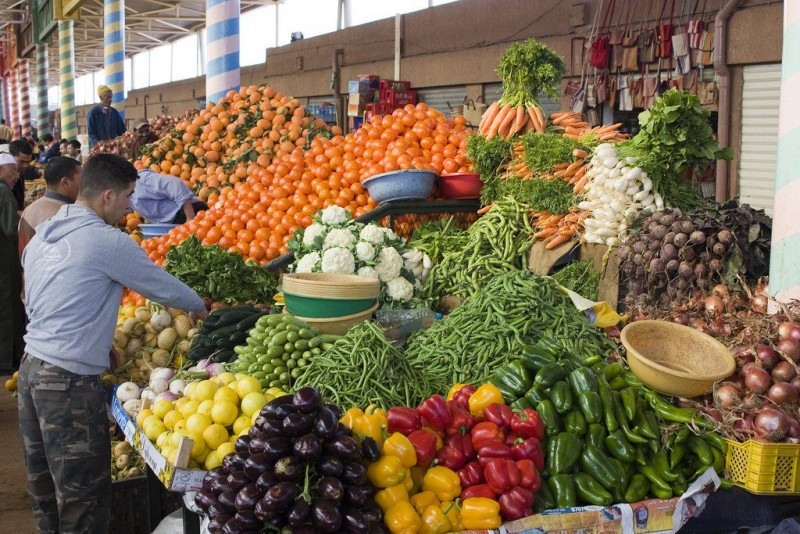Consumer Prices in Morocco Continued to Rise in February

Rabat - Morocco's Consumer Price Index (CPI) —the indicator used to measure national inflation — rose in February 2023, reflecting growing consumer goods prices.
Morocco’s High Commission for Planning released the figures today in its monthly update of the country’s Consumer Price Index stating that in February, the CPI rose by 1.7% compared to the month before, and by 10.1% year-on-year.
The reported monthly increase is a result of the rise in the food price index which climbed by 3.9% and the stagnation that the non-food price index has experienced.
Meanwhile, the year-on-year increase is attributed to the growth in food prices by 20.1% and that of non-food products by 3.6%. Core inflation rose by 0.8% over the same month, reaching a yearly average increase of 8.5%, HCP data says.
The underlying rise in food prices between January and February was primarily triggered by a 17.8% hike in vegetable prices, a 5.7% rise in fruit prices, 0.5% in coffee, tea, and cocoa, 4.3% in meat, and a 1.3% in oils and fats. The price of dairy products grew by 2.3%.
For non-food products, the increase has mainly affected fuel prices by 1.3%, the report detailed.
However, the prices of fish and seafood dropped by 1.0%.
Healthcare prices increased by 0.4%, while transportation prices increased by 8.3% year-on- year.
Regional Data
Regarding regional data HCP found the largest increase in the CPI was recorded in Al-Hoceima at 2.6%, Safi and Beni-Mellal at 2.5%, Errachidia at 2.4%, Settat at 2.3%, Kenitra at 2.2%.
Casablanca and Laayoune saw a 1.2% increase. Whereas, Agadir, Rabat, and Meknes all had a 1.4% increase.
In light of soaring inflation, Morocco’s central bank, Bank Al-Maghrib, raised central bank interest rates by 50 basis points to 3% on March 21.
BAM raised interest rates for the third time within less than two years–a first since 2006– in an effort to rein in the country's inflation.
BAM also announced that inflation in Morocco is expected to ease, yet remain elevated by the end of 2023, emphasizing that the high rate is primarily due to a “surge in prices of certain food products.”
Meanwhile, Morocco’s Minister of Economy and Finance Nadia Fettah Alaoui said yesterday that the prices of basic food commodities should stabilize in the coming days.

